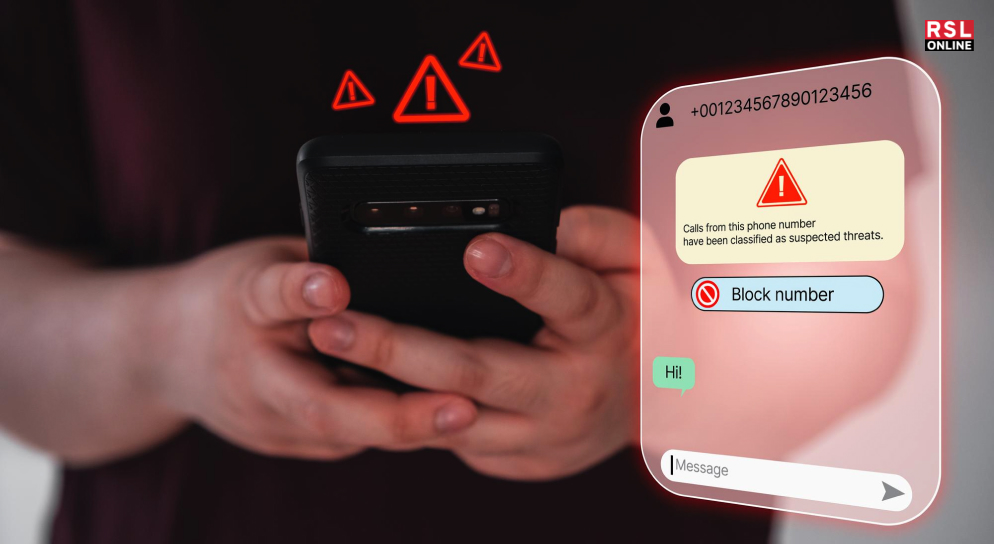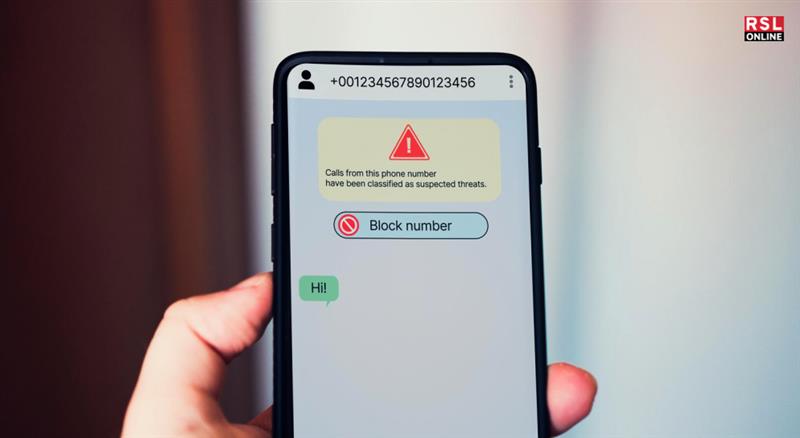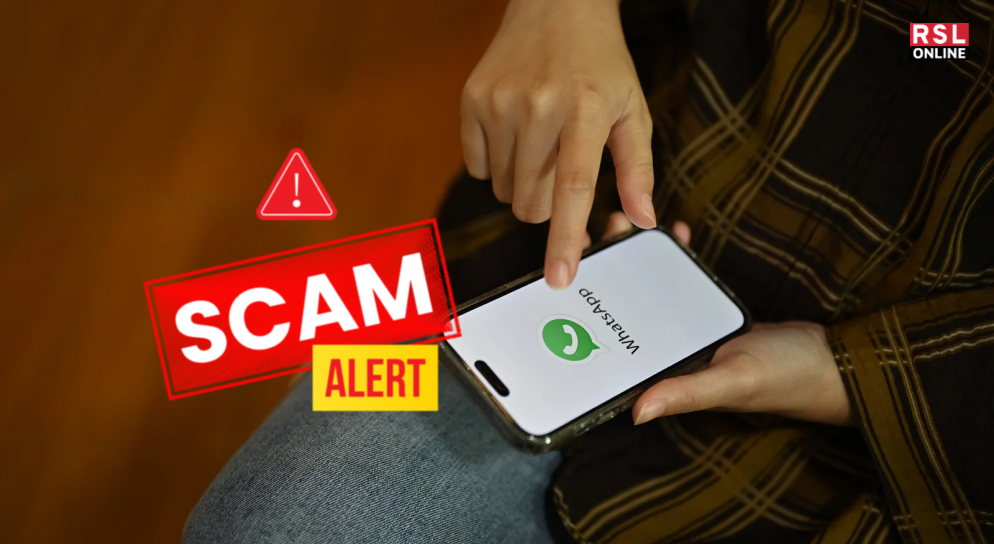- Users have faced huge financial losses, with Americans alone losing over $13 billion in 2023 to text and messaging scams on WhatsApp.
- WhatsApp scams have surged dramatically in the past year, with a reported 2000% increase in certain regions.
- Scammers frequently impersonate family members or friends, exploit emotions, or promise exclusive features like “WhatsApp Gold” to lure victims.
Is there anyone who does not use WhatsApp? Being the largest messaging app online with users worldwide, it is a great internet tool for staying in touch with loved ones. However, did you know that this worldwide reach is also one of the reasons why scammers often use this platform?
Yes, you read that right! Even though it’s a typically secure instant messaging service, you should be mindful of scammers using the app. But how to track a scammer on WhatsApp?
If you have recently fallen into this massive web of WhatsApp scams or are interested in knowing what to do about it, you have reached the right place! So, keep reading this blog until the end to learn more and steer clear of scammers…
WhatsApp Scams are Increasing Rapidly
The number of frauds is rapidly increasing due to scammers discovering new ways to take advantage of WhatsApp, which is being used by more people every day.
For instance, scam reports increased dramatically in 2023, and according to current data, Americans lost more than $13 billion to text and message scams, with WhatsApp being a major contributor.
This shows how susceptible consumers are to scammers who use various strategies to steal data, money, or personal information.
Additionally, one prevalent kind of WhatsApp scam is when con artists pose as someone you know, such as a friend or relative. They can ask for private details or say they urgently need money.
Another common technique is the “verification code” fraud, in which a con artist assumes control of your account by tricking you into disclosing a verification code sent to your phone.
These con artists frequently entice victims with emotional manipulation or phony incentives; occasionally, they promise “exclusive” services like “WhatsApp Gold” to make their strategy appear genuine.
In light of this tendency, it’s crucial to exercise caution and confirm the legitimacy of anyone contacting you unexpectedly over WhatsApp.
Sharing private information should also be avoided, and connections from contacts you don’t know should be avoided. Adding two-step verification to your account gives it an additional layer of security.
These WhatsApp scams serve as a reminder of the value of remaining informed and aware of typical scammer techniques. Furthermore, you may protect yourself from scams constantly changing as WhatsApp’s popularity rises by being aware of these techniques and exercising vigilance.
Why are WhatsApp Scams Effective?
WhatsApp scammers are adept at taking advantage of haste and trust. They structure their messages to force you to take action, frequently before you have had a chance to consider your options.
They get past your normal defenses and put you in a position where you feel compelled to react by posing as someone you know or by making an attractive offer. Because WhatsApp is a direct and private communication tool, these scams are also successful.
Furthermore, WhatsApp feels more private and safe than email, where users may be more wary of spam or phishing efforts. Users may become less cautious as a result, increasing their vulnerability to scams.
Types of WhatsApp Scams

Now that you are aware of the fact that there are several WhatsApp scams that are taking place throughout the world, it is time for you to know what some of the most common types of scams are that you might face.
Here are the most common ones that you need to know about:
1. Loved One in Need Scams
Firstly, the perpetrator of this fraud poses as a close friend or relative. They may message you to indicate they need aid immediately, usually stating that they are in an emergency, such as a vehicle accident, being trapped abroad, or experiencing a medical emergency.
The con artist will play on your feelings and sense of duty by requesting that money be provided right away. There is a sense of urgency and suddenness to the request.
Additionally, the individual may be contacting you from an unknown number because they say they misplaced their wallet or phone. They could make excuses to avoid face-to-face interaction by avoiding voice or video calls.
How to Protect Yourself: Always confirm the person’s identification. Pose targeted queries that only your true friends or relatives would be able to answer. Before sending any money, try to get in touch with them in another way, like by calling their normal number. It’s probably a fraud if their tale doesn’t add up or if they won’t provide identification.
2. Verification Code Scams
Secondly, the scammer contacts you in this scam by posing as someone you know or even as WhatsApp support.
When you set up your WhatsApp account, they will ask for the verification code you received by SMS. They may claim that they need the code for security purposes or that they sent it to your number by mistake.
By using the verification code to log in as you, the scammer is actually attempting to take over your WhatsApp account.
Unexpectedly, you get a WhatsApp verification code without attempting to log in or adjust any preferences. The con artist says it’s an error or pushes you to divulge the code right away.
How to Protect Yourself: Never give out your WhatsApp verification code to anybody, not even your loved ones. WhatsApp will never call or message you for your code. Unexpectedly receiving a code indicates that someone is attempting to access your account. To increase security, turn on two-factor authentication right away in your WhatsApp settings.
3. Gift Card and QR Code Scams
Usually, this kind of scam is getting a message promising a free gift card, prize, or exclusive deal. Typically, the message contains a QR code or link that you must scan or click in order to take advantage of the deal.
You can unintentionally download malware, divulge personal information, or even grant the scammer access to your WhatsApp account after you click on the link or scan the QR code.
Furthermore, there is a sense of urgency to collect the prize before it expires because the offer looks too good to be true. The message could appear to be from a buddy who has been hacked, or it could be from an unknown number.
How to Protect Yourself: Unsolicited offers or mail that promise something for free should be avoided. Avoid scanning QR codes or clicking links from unidentified or unreliable sources. Additionally, before acting on a strange message from a friend, get confirmation from them directly. Reputable businesses typically don’t use random WhatsApp messages to distribute prizes.
How to Track a Scammer on WhatsApp?

So, how do you track a scammer on WhatsApp? If this is something that you have been dying to know, you have reached the right place.
Here are a few things that you need to do:
1. Examine Their Profile Details:
Firstly, to begin, examine the scammer’s profile. Examine their information, status, and profile image. Scammers frequently utilize generic or phony photos, and their status may be odd or ambiguous. Scammers frequently don’t work hard to create their profiles. Something is a warning sign if it seems strange or impersonal.
2. Trace the Phone Number:
To find out if the scammer’s phone number is connected to any known frauds, you can look it up online or use reverse phone lookup services. Additionally, scammers occasionally use the same number for several frauds, and you can find out if the number has been reported by others by doing an internet search.
3. Verify the Timing of the Message:
Keep an eye out for the scammer’s message timing. One indicator could be that they are working from a different time zone if they are messaging at strange hours. This information can assist you in pinpointing the location of scammers, who frequently operate from many nations.
4. Make use of WhatsApp’s reporting function:
Use WhatsApp to report the user directly if you think they are attempting to defraud you. Select Report Contact after scrolling down their profile. By reporting the scammer, you and other users can help WhatsApp track and perhaps block their accounts.
5. How to Track a Scammer on WhatsApp Without Them Knowing:
Finally, avoid interacting directly with scammers if you wish to trace them without warning them. Instead, keep an eye on their conversations, look up their phone number online, and take screenshots of anything that seems fishy.
Furthermore, being under the radar gives you the advantage because it enables you to obtain more information without alerting the fraudster.
Spot the Scammer: What Does a Suspicious Message Look Like on WhatsApp?

There are hints that could suggest the sender is unreliable or that you have received a questionable communication. Keep an eye out for these indicators:
- Grammatical errors or typos
- Requesting that you download an app, tap on a link, or use a link to activate a new feature.
- Asking for sensitive information, such as passwords, birthdates, or credit card or bank account numbers
- Requesting that you send a message
- Requesting money or asserting that using WhatsApp requires payment
- The con artist poses as someone you know.
- It has to do with gambling, the lottery, a job, an investment, or a loan.
- Before requesting personal information, the individual engages in conversation to earn your trust.
WhatsApp Support will provide you with signs in the message that you can use to decide how to react when you receive messages from people who are not in your contacts.
These signals will inform you whether they are a contact, whether you belong to the same group, and whether their phone number is registered in a foreign nation. Furthermore, you can then choose whether to respond, add them as a contact, block them, or file a report.
Read More:




























